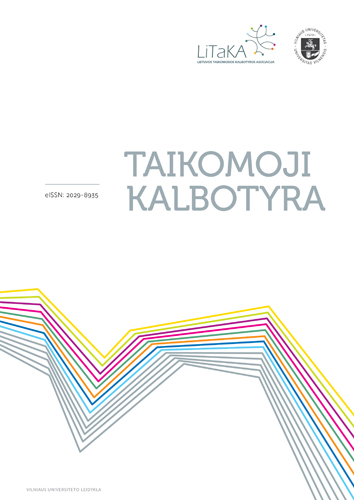Discours et contre-discours autour de l’enseignement de la littérature à l’université
Discourse and counter-discourse on the teaching of literature at university
Author(s): Gabriela ScripnicSubject(s): Studies of Literature, Higher Education
Published by: Vilniaus Universiteto Leidykla
Keywords: literature; argument; counter argument; type of reasoning;
Summary/Abstract: The fact that the teaching of literature goes through a period of questioning and reconsideration is no longer a novelty: numerous conferences, scientific publications and opinions of non-specialists disseminated through media point to an epistemological crisis in the teaching of literature in general, and to a didactic and methodological crisis in the teaching of French literature to foreign learners, in particular. In this context, this study takes into account several cases of scientific/ academic discourse, namely, three contributions published in the proceedings of the conference Enseigner la littérature à l’université aujourd’hui which took place at Aix-en-Provence University, France, 10–12 March 2011. These contributions argue in favour of (continuing) teaching literature and are discussed in this study in order to highlight the arguments and the typology of argumentative reasoning used to gain and/or to strengthen the audience’s commitment. In addition, this discourse analysis makes it possible to draw parallels with examples of ordinary speech, as seen in the comment section that follows the article Pourquoi il faut continuer d'enseigner les classiques de la littérature? written by Catherine Marle-Guyon and published 23 March 2013. In the comment, the speakers, whose socio-professional status is not always identifiable, express their attitude by mobilizing linguistic resources, which will be subjected to our analysis, too. Moreover, taking the dialogic model of argumentation (Plantin 2005, 2010) as a general theoretical framework, this study aims at answering the following questions: (a) what are the strengths and weaknesses of the socioeconomic context favouring or, on the contrary, hindering the study of literature? (b) to what extent do the notions of discourse/ counter-discourse find practical anchorage in the corpus of the teaching of literature? In this study, the counter-discourse does not refer to the stance against teaching literature (because any reasonable individual, researcher, teacher or not, is aware that literature is necessary for education and human fulfilment), but to the stance against certain arguments wrongly rooted in the collective consciousness that would justify the study of literature.
Journal: Taikomoji kalbotyra
- Issue Year: 2018
- Issue No: 11
- Page Range: 59-74
- Page Count: 16
- Language: French

